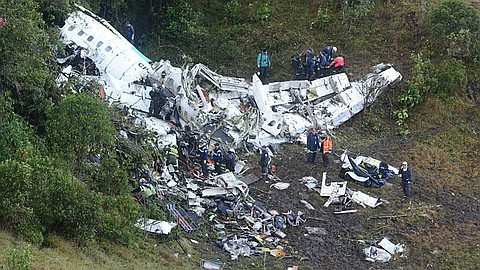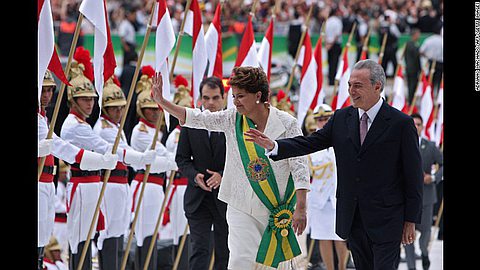Zika Virus a Global Health Emergency, W.H.O. Says

An outbreak of the Zika virus, which is transmitted by mosquitoes, was detected in Brazil in May and has since moved into more than 20 countries in Latin America, including two new ones announced Monday: Costa Rica and Jamaica.
The main worry is over the virus’s possible link to microcephaly, a condition that causes babies to be born with unusually small heads and, in the vast majority of cases, damaged brains. Reported cases of microcephaly are rising sharply in Brazil, ground zero for the disease, though researchers have yet to establish that Zika causes the condition.
At a news conference in Geneva, Dr. Margaret Chan, the director general of the W.H.O, acknowledged that the understanding of the connection between the Zika virus and microcephaly was hazy and said that the uncertainty placed “a heavy burden” on pregnant women and their families throughout the Americas. She said the emergency designation would allow the health agency to coordinate the many efforts to get desperately needed answers. Officials said research on the effects of Zika in pregnant women was underway in at least three countries: Brazil, Colombia and El Salvador.
“The evidence is growing and it’s getting strong,” Dr. Chan said. “So I accepted, even on microcephaly alone, that it is sufficient to call an emergency. We need a coordinated international response.”
But the agency stopped short of advising pregnant women not to travel to the affected region, a precaution that American health officials began recommending last month. Some global health experts contended the W.H.O.’s decision was more about politics than medicine. Brazil is preparing to host the Olympics this summer, and any ban on travel, even just for pregnant women, would deliver a serious blow to the Brazilian government.
“I think there was a political overtone,” said Lawrence O. Gostin, director of the O’Neill Institute for National and Global Health Law at Georgetown University. “If it were my daughter and she was pregnant or thinking of getting pregnant, I would absolutely warn her off of going to a Zika-affected country, and the W.H.O. should have said that.”
The current outbreak of Zika has taken the world by surprise. The virus was first identified in 1947 in Uganda, and for years lived mostly in monkeys. But last May in Brazil, cases began increasing drastically. The W.H.O. has estimated that four million people could be infected by the end of the year. The rapid spread is because people in the Americas have not developed immunity, public health experts say.
Health officials in the United States, however, say the risk of a major homegrown outbreak is low because mosquito control programs are systematic and effective. They cite a related virus, dengue, which is also transmitted by mosquitoes but has not spread very much since first appearing locally a few years ago.
An emergency designation from the W.H.O. can prompt action and funding from governments and nonprofits around the world. It elevates the agency to the position of global coordinator and gives its decisions the force of international law. It could also help standardize surveillance of new cases across countries — something that Dr. David L. Heymann, professor of infectious disease epidemiology at the London School of Hygiene and Tropical Medicine, who chaired the emergency committee, said was critical to getting control over the virus.
The global health agency is trying to strike a balance between alerting the public and scaring it. Zika symptoms are mild or even nonexistent in most people. Overreaction could have the effect of punishing countries that are experiencing epidemics, experts say, for example, through restrictions on travel, trade or tourism that could hurt economies.
The thrust of Monday’s meeting — which was held by teleconference and included presentations from officials of the affected countries — was a renewed emphasis on research to determine whether Zika can cause microcephaly. Dr. Heymann said afterward that he could not discuss the evidence that was presented in a confidential meeting. But he underscored that committee members were mostly concerned that the research efforts, unfolding in multiple countries, were not coordinated.
“The research needs to be pulled together instead of different groups doing different things in their own corners,” Dr. Heymann said in a telephone interview. He added that the committee members were “pretty unanimous” in their decision to recommend emergency status.
Dr. Chan said new case control studies on the connection between Zika and microcephaly will start in the next two weeks. “Can you imagine if we do not do all this work now and wait until all the scientific evidence comes out, people will say why didn’t you take action?” said Dr. Chan, who is trying to cast the agency as a global leader to revive its reputation after a faltering response during the Ebola epidemic in West Africa.
But many health experts said Monday’s announcement lacked details, and they expressed concern that it would not jolt the agency into action. Among the most urgent needs, experts said, were aggressive efforts to control the populations of mosquitoes that spread Zika and know no boundaries.
“They should have presented a specific list of interventions and the most obvious one is mosquito control,” said Dr. Peter J. Hotez, the dean of the National School of Tropical Medicine at Baylor College of Medicine. “This is their window of opportunity.”
Continue reading the main story





